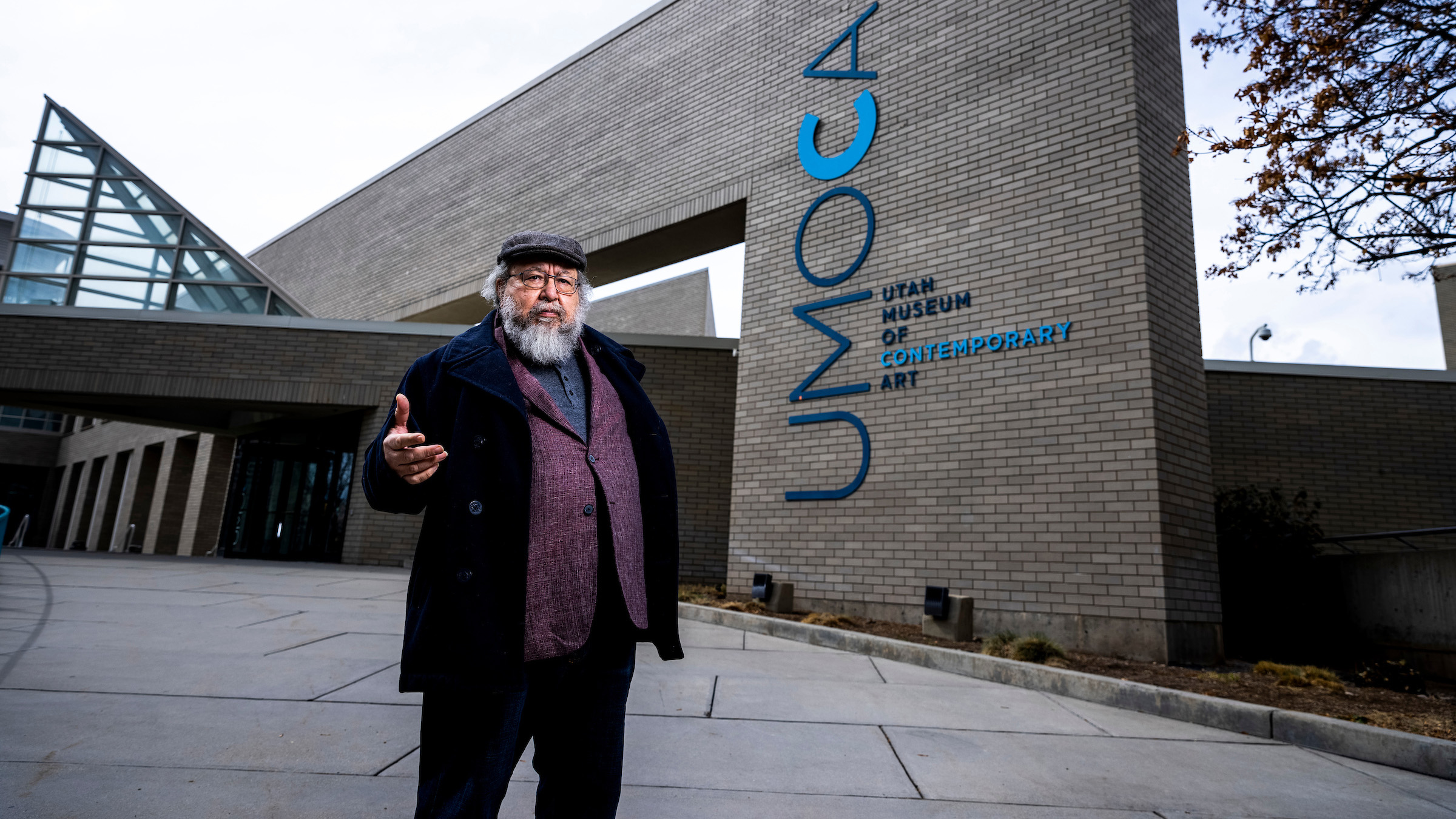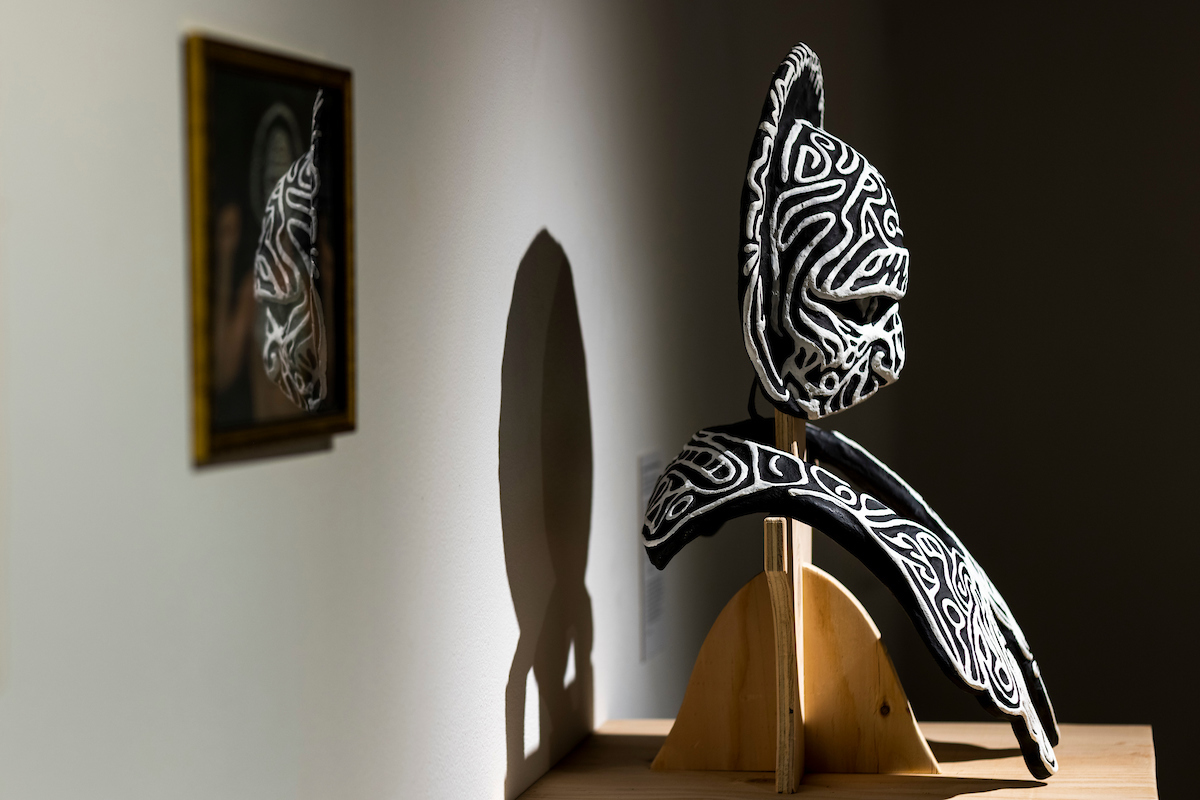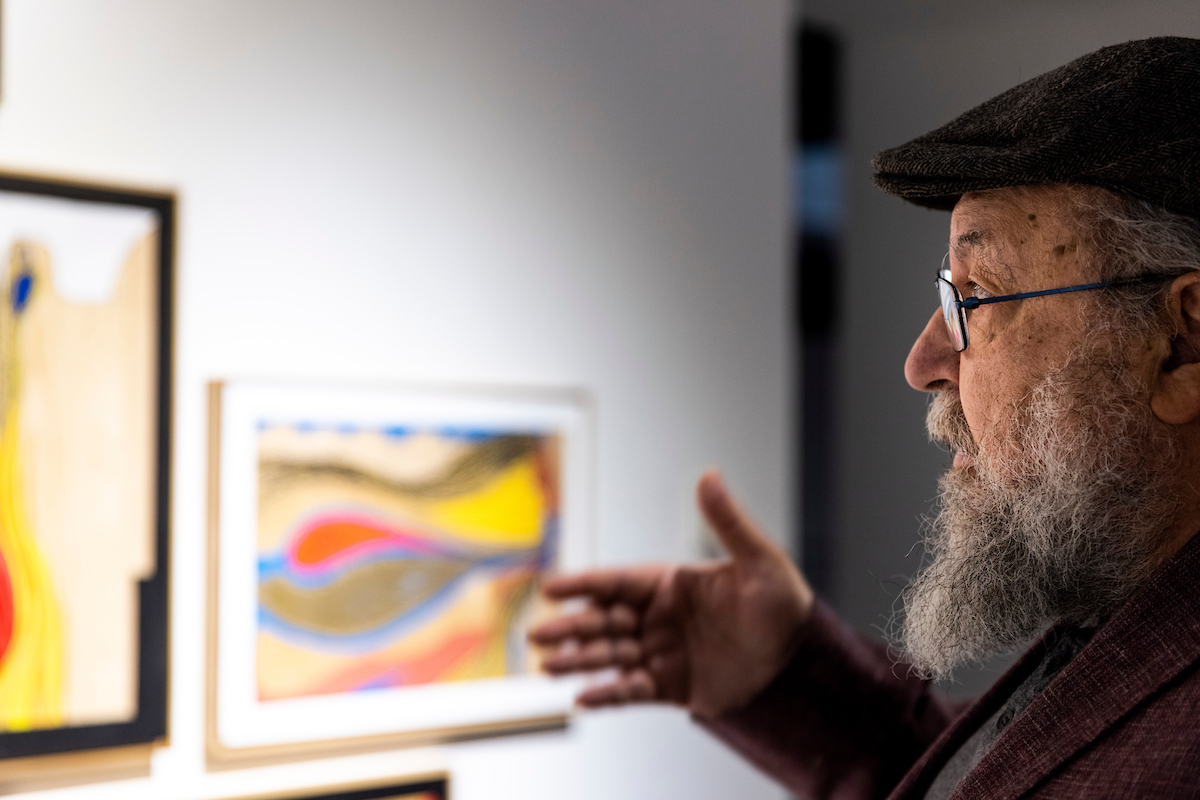UVU professor Alex Caldiero's work, spanning 50 years, is on display at the Utah Museum of Contemporary Art through May.

Art requires patience, 72-year-old Alex Caldiero says. The Utah Valley University professor of humanities is the artist in residence at UVU. He’s perfected patience over a lifetime. His work, spanning 50 years, is on display at the Utah Museum of Contemporary Art through May.
“How do you know what color to use and what to do with the shape? I don’t know, so I have to wait. That’s why it took me so long, I have to wait for everything. I have to wait until I see it, I have to wait for the words, I have to wait for the color, then I fill it in.”
He learned patience as an apprentice to sculptor Michael Lekakis, and poet-bard Ignazio Buttitta. “You know, I would sit and watch Lekakis. He was a sculptor, abstract expressionist, and I would be sitting in his studio six or seven hours just watching him work the wood. Just waiting. Observing. That’s very important.”
But, if you ask him, he will tell you he’s not an artist at all. Caldiero is equally uncomfortable with the labels renowned poet, sonosopher, and musician.
“I look at all of this as documentation. For me, it’s not art. This is documentation. Of what I am understanding, what I am feeling, what I’m looking for, what I am wondering about, my encounters with the miraculous. I’m documenting.”

His collection of “documentation” was selected to celebrate the museum’s 90th year. Exhibit curator Jared Steffensen agrees with Caldiero that one descriptor is not enough.
“Whenever we talk about him, we call him a ‘maker’ maybe more than we call him an artist. That making, then, covers drawings, paintings, performances, poetry, and word-based artwork,” Steffensen says.
As a child, Caldiero wrote poetry for his Sicilian grandmother in the ancient town of Licodia Eubea, Italy. His family immigrated to Manhattan, New York, when he was nine years old, but he found himself listening at the feet of Italian philosophers in the local automat diner.
“All of these old men would gather in the automat every Saturday morning, and I never said a word. I never asked any questions. I listened for about seven or eight years. All of these old men would discuss the best translations of Homer — the Greek plays. It was the classics, the classics!”
He is a self-proclaimed traditionalist, and says it is through the study of humanities that we become human. “People think they are born human beings. No. You are not born a human being. You become one if you’re lucky. You develop into one. That’s what humanities, philosophy, that’s what that is.”

Caldiero says the process of becoming human doesn’t ever end. “Education, theoretically, is not something you really finish, and you are over with — that’s why you say what do you take with you? What do you bring to it? That’s the bigger question.”
His exploration of and passion for life has taken him back to Sicily, Sardinia, Turkey, and Greece, where he explored language, music, and visual arts, but since 2002 he has always returned to UVU to help others experience what he knows. There is one label he is very comfortable with. “I’m a teacher, are you kidding? That’s a title that I definitely own. I teach, but I teach in a different way. I teach by learning.” And that too, requires patience.
This article was originally published in the Provo Daily Herald.